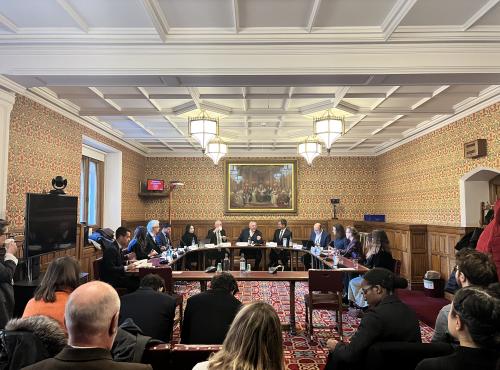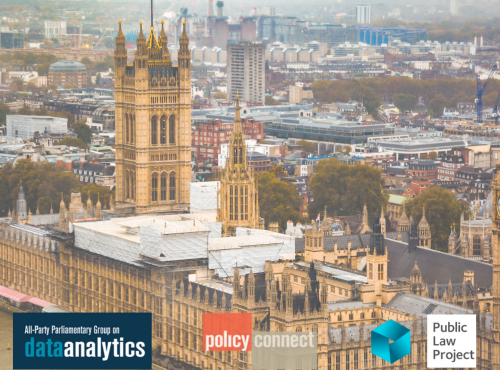APGDA host discussion on the case for a data code of ethics for professional bodies
The All-Party Parliamentary Group for Data Analytics (APGDA) was delighted to host a remote panel discussion on Monday 16th March 2020. The discussion brought together a range of sector leaders to look into how professional bodies and associations are developing codes of ethics that can respond to the increased use of data in a number of policy areas.
The discussion was chaired by Darren Jones MP, Vice-Chair of the APGDA, and included responses by; Debrah Harding - Managing Director at the Market Research Society, Chris Combemale - CEO of the Data and Marketing Association, Peter Wright - Managing Director of Digital Law UK, and Maggie McGhee - Executive Director for Governance at the ACCA.
The call was joined by a number of key figures from across the sector.
Darren Jones opened the discussion by introducing the work of the APGDA, including his work as a co-chair of Trust, Transparency and Tech - a report by the Group which introduced a range of key themes to how public and private sector bodies can coordinate on the ethical use of data in a range of areas.
Debrah Harding of the Market Research Society began by noting the key challenge for professional bodies as being one that was ultimately rooted in that of outdated systems. She said that many of the current uses of data were hampered by outdated technology to process it. Many large data sets are still unable to be coordinated across different sectors.
Chris Combemale of the Data and Market Association noting that his sector had been successful in recent years in moving the conversation about data practice and innovation to a new sector. Major technology giants such as Google, Amazon, Facebook and Airbnb are now moving towards developing a framework of “intelligent marketing”. This is a system in which AI and Machine Learning can develop new methods of data collection that work across different areas of the economy. He added that creating a principle of co-regulation is vital in bringing together industry associations with regulators, as well as ensuring a level of harmonisation of data regulation.
Peter Wright from Digital Law UK began by noting the rapidly changing nature of regulation in the area of data regulation. He noted the presence of a dividing line between talking about data around a range of sectors, as well as the split in how such data is used. His ultimate message was the challenge for policy makers being set in how to encourage innovation whilst protecting data subject rights across the UK.
Finally, Maggie McGhee of the ACCA turned into the key points arising from the chartered accountancy sector. As the industry body, the ACCA has a large public interest remit with ethics hard-coded into from the leadership down to individual accountants. She noted the need to develop an effective code of ethics from across the sector and to move away from the microlevel to harnessing and sharing data in a trusted common pool that can be shared with regulators and the wider public good.
The panel then responded to a number of submitted questions regarding the need for a common code of ethics for healthcare data, the role for regulator bodies such as the Information Commissioner’s Office and the Centre for Data Ethics and Innovation, the impact of Brexit on the regulator landscape, and the ability to develop a consistent style of language across codes of conduct.
Darren Jones concluded the session by thanking all the participants for their contributions to the discussion. He said that the APGDA would continue to make overtures in the near future regarding the matters raised, and would also ensure that the APGDA would continue to function during the current crisis.





